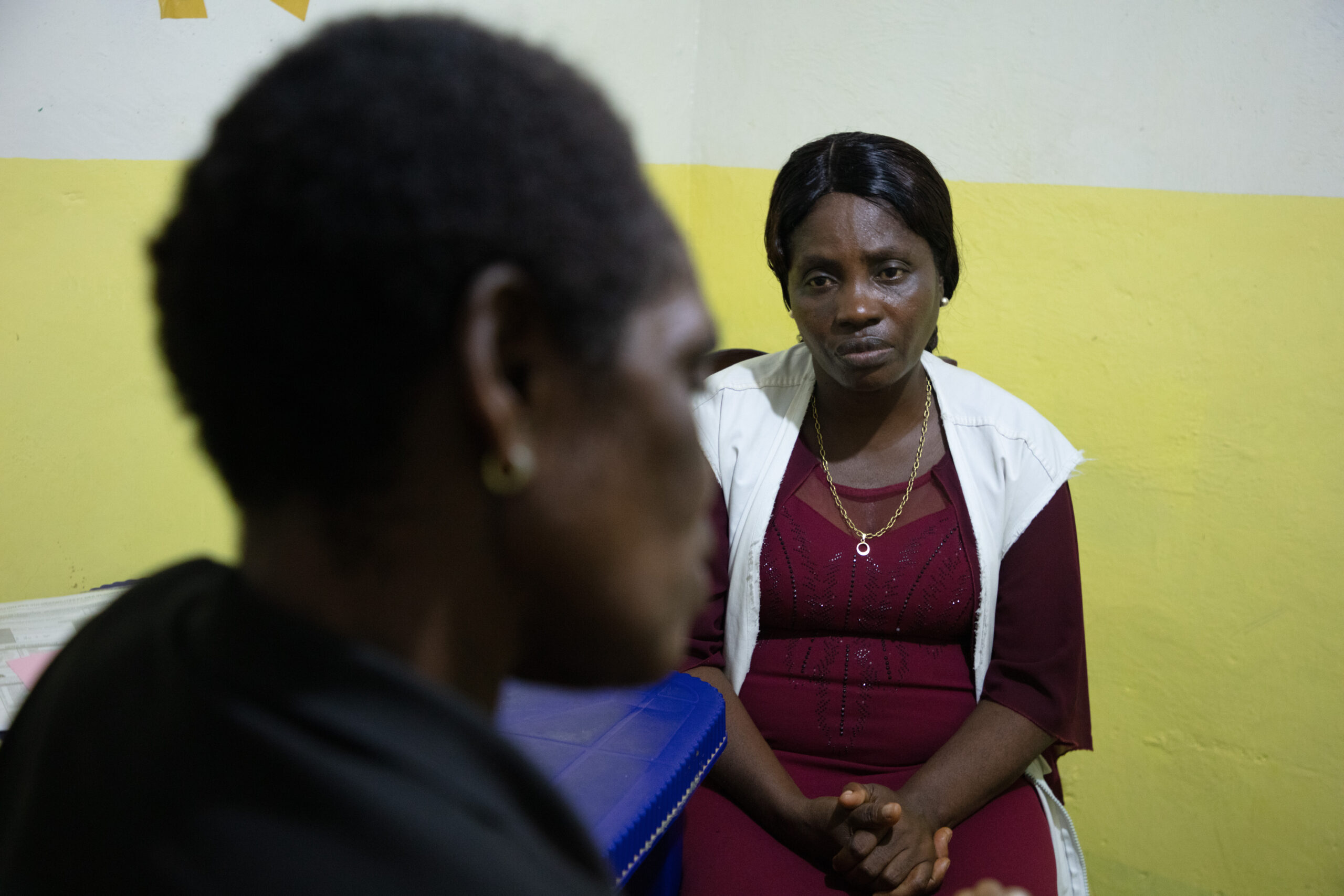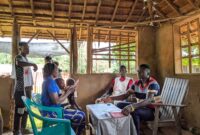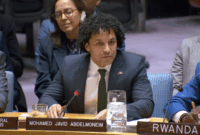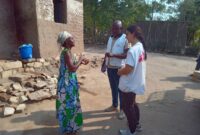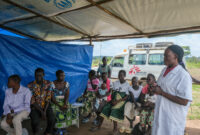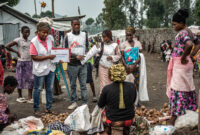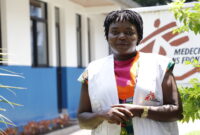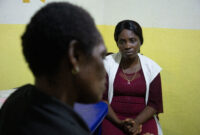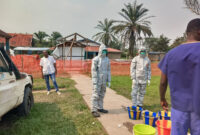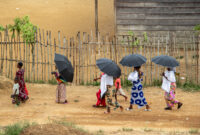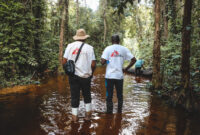Democratic Republic of Congo: Organizations must continue response on sexual violence emergency in Maniema
Thousands of rape survivors in Salamabila face an uncertain future as vital care programs end.
It is an alarming figure: at least seven people on average are raped every day in Salamabila, in the province of Maniema, Democratic Republic of Congo (DRC), according Doctors Without Borders/Médecins Sans Frontières (MSF). These findings are based on to data collected since the start of our intervention in 2018.
Since 2019, MSF has treated 16,436 survivors in the region. The number of women who sought care multiplied by 11 between 2019 and 2024.
This alarming figure reflects the scale of a silent crisis too often overlooked and forgotten by national and international authorities. As MSF leaves the project at the end of October, we urge donors and organizations to step in and ensure that progress in providing care to survivors and education on sexual violence continues.
Sexual violence remains a public health emergency throughout eastern DRC, including in Maniema province. The conflict between armed groups in the region, as well as violence committed by groups outside the conflict, continues to lead to a high number of sexual assaults.
“This is our greatest victory here. [Reproductive health workers] have become indispensable. Going to these agents is much more discreet than going to the hospital, where survivors would be exposed to questions from residents and risk arousing the suspicions of a husband who could expel them from the home at any moment.”
Elodie Françoise, MSF medical coordinator
In a discreet wing of Salamabila hospital, within the walls of a small, dark room where a thick curtain protects her from prying eyes, Fabienne* shares her story with MSF social worker Alice. “There were five of them,” she says. “First, they hit me very hard in the stomach. They ripped off my clothes and abused me. When they left, they even took my underwear, where I had hidden some money.”
While returning from the market, Fabienne was raped by members of an armed group. A month after the attack, the trauma is still raw. “When I think back on it all, it hurts me deeply, right here in my heart,” she says.
Each of the survivors MSF has cared for since 2019 have received emergency treatment for sexually transmitted diseases and pregnancy. Women also received psychological support if they wanted it. At the same time, our teams have distributed hundreds of emergency kits to the women who had been expelled from their homes by their husbands.
Former survivors become pillars of community care
In response to this crisis, MSF has been implementing an innovative community-based approach in Salamabila since 2019 to meet survivors needs. The decentralized approach is based on the work of reproductive health workers (RHWs), women from the community who are often survivors of rape themselves.
They are trained to provide rapid, confidential, and free medical care and psychological and socio-economic support within their communities. In 2024, three-quarters of people were treated/seen by these RHWs, illustrating the effectiveness and relevance of this decentralized model.
“This is our greatest victory here,” says Elodie Françoise, MSF medical coordinator. “They have become indispensable. Going to these agents is much more discreet than going to the hospital, where survivors would be exposed to questions from residents and risk arousing the suspicions of a husband who could expel them from the home at any moment.”
“Little by little, we saw husbands change, encouraging their wives to seek treatment and even accompanying them, which was unimaginable before.”
Kalume Kalumwendo, health promotion supervisor
In Salamabila, Baati is one of these RHAs. She took in eight more survivors last week. “For me, it’s sometimes painful to hear their stories because I feel like I’m reliving their trauma with them,” she says. “I have a lot of empathy. But I also consider my work to be very important. I draw on my personal history so they can identify with me and trust me. Without the medication I received, I might not be alive today.”
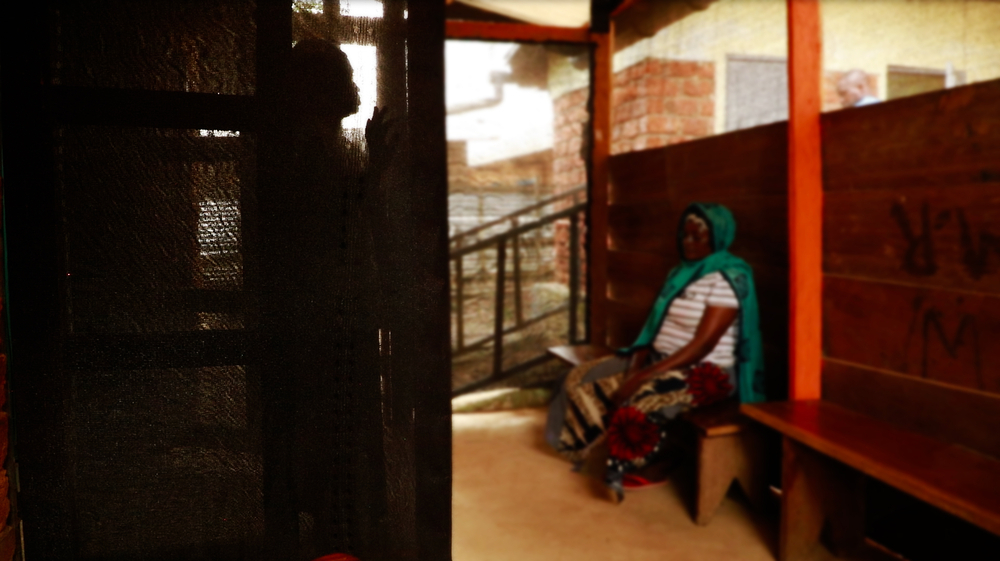
Working with men to limit the double punishment of stigmatization
When Fabienne returned home, her husband, in a state of panic, informed the entire village of the assault. He kicked her out of the house and then asked a neighbour sheltering her to kick her out as well. “At that point, I couldn’t sleep at night,” says Fabienne. “I was afraid of ending up with nothing. My husband had already taken all our possessions and I was at risk of ending up on the street.”
This double punishment is linked to preconceived notions and other stigmas surrounding rape. MSF is working to change these attitudes by creating a “husbands’ school.” In this program, meant for “all the men of the house,” health teams have taught at least 1,520 men an important message: rape is not cheating or something to be ashamed of; it is violence and no woman is ever to blame for it. This long-term effort has borne fruit.
“Little by little, we saw husbands change, encouraging their wives to seek treatment and even accompanying them, which was unimaginable before,” says Kalume Kalumwendo, health promotion supervisor.
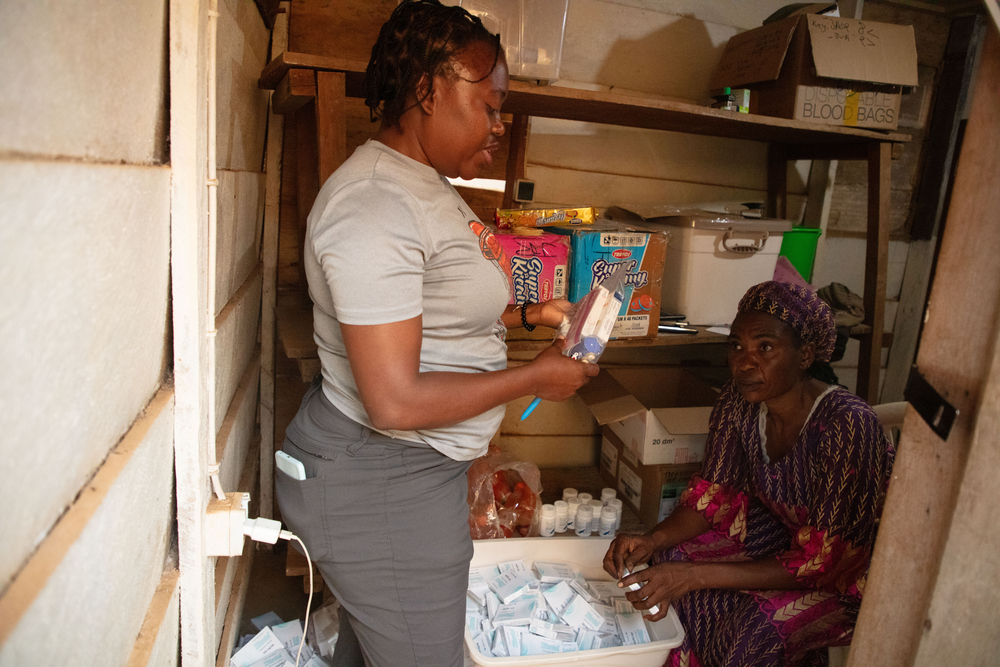
Drug shortages are a growing concern
After seven years of intervention, MSF is ending medical activities in Salamabila at the end of October. This withdrawal was planned but has been slightly accelerated to allow MSF to focus resources on medical and humanitarian emergencies, in a broader context of growing needs, sharply declining funding and ongoing crisis in eastern DRC.
Maniema province is one of the most isolated in the country. Insecurity, the remoteness of health facilities and the high cost of transportation severely limit access to care. Since the armed conflict worsened and Bukavu airport closed, transporting medicines and staff to Salamabila has become longer, more complex and more expensive, although it is still possible by air.
“I fear that the armed men who commit these rapes will once again intimidate the survivors and that the code of silence will return. So I am appealing to the Ministry of Health and all partners who can help us to take over MSF’s activities. It is vital for all these women.”
Charles Bamavu, chief medical officer in Salamabila
In the five health centres supported by MSF and among several RHAs, there is immense concern the medicines provided by MSF will run out once the donations have been used up.
“When I see a rape survivor arrive, I feel tears welling up because I know I won’t have any more drugs to protect her. I feel powerless,” says Emmanuel, a nurse at the health centre in the village of Sous-Marin.
This pain and concern are shared by Jean Claude Alfani Selemani, a doctor at the Kayembe health centre. “If there are no more medicines, the survivors will hardly come anymore, attendance will drop and I am very worried,” he says.
Call for action by the Ministry of Health and international actors
Faced with this situation and the persistent shortcomings of the health system in Maniema, MSF and the health authorities in Salamabila have appealed to the Ministry of Health, donors and humanitarian partners to mobilize all the necessary resources to resume activities.
Charles Bamavu, chief medical officer for the area, fears a return to square one. “I fear that the armed men who commit these rapes will once again intimidate survivors and that the code of silence will return. So I am appealing to the Ministry of Health and all partners who can help us to take over MSF’s activities. It is vital for all these women.”
The effectiveness of the community-based approach led by women from the community trained as reproductive health workers has been proven. Moreover, the model in place in Salamabila is replicable and vitally important from a humanitarian perspective. Despite the progress made, there still isn’t a strong and steady response. Sexual violence is a major public health issue and tackling it properly requires a holistic approach including medical care, psychological support, socio-economic assistance, protection and legal services.
*Name changed for anonymity.
